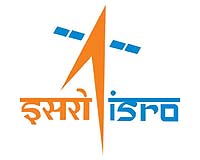 |
Waterloo, Canada (SPX) May 28, 2010 "One small step for mankind" will take on new meaning May 26 when Laurier professor Stephen Perry tickles the feet of astronauts returning from a space shuttle Atlantis mission. The research, designed to measure the influence of space travel on foot sensitivity, will provide important information about the links between hypersensitivity, balance control and the aging process. "The importance of footsole sensation in balance control has been well documented," said Perry, associate professor and chair of the Kinesiology and Physical Education department at Laurier. "This experiment gives us the unique opportunity to test individuals before and after they are exposed to zero-gravity conditions and will provide insight into how this sensory system adapts." The Hypersole research team - consisting of Perry, principal investigator Leah Bent from the University of Guelph and four additional University of Guelph researchers - will tickle the soles of three astronauts returning to Earth from NASA's May 14 STS-132 mission. Immediately after the shuttle touches down to Earth, researchers will compare the change in astronauts' skin sensitivity to tests taken before the mission, allowing them to identify the specific foot sensors influenced by weightlessness. Results will be documented for the first time, and along with a balance test, will help to determine the effect of hypersensitivity on balance control. Depending on weather conditions, the experiment will take place in either the Kennedy Space Center in Florida or the Dryden Space Center in California. During space travel, astronauts often experience the same physical changes that occur over time as people age, but at an accelerated pace. Skin sensitivity usually decreases with age, so when Bent heard evidence that the soles of astronaut's feet were more sensitive instead of less sensitive days after they returned to Earth, she initiated the Hypersole project to investigate. The research team hypothesized that to make up for the lack of vestibular (inner-ear) information while in space, select skin receptors in the soles of astronauts' feet become increasingly sensitive in order to "re-weight" the sensory system. The research team hopes that the study will identify the most critical receptors in the foot, which could then be targeted and re-activated among members of the aging population to offset sensitivity loss, which can lead to a loss in balance control and a greater number of falls. Identical trials before the Discovery mission in September and Endeavour in November will be conducted before launch and immediately upon return to Earth. For further information about the Hypersole study on the Canadian Space Agency's website click here and here. Over the past 10 years, Perry and others have developed an insole called the Sole Sensor that alerts seniors when they are losing their balance, reducing the number of fall-related injuries.
Share This Article With Planet Earth
Related Links University of Guelph Space Tourism, Space Transport and Space Exploration News
 Indian Space Programmes Serve Societal Needs
Indian Space Programmes Serve Societal NeedsWashington DC (SPX) May 27, 2010 Identifying India as a 'big partner' of the US space programme, NASA has applauded the country's efforts in using its space missions for "societal needs." "I think it's 85 per cent of their budget is spent on what they call societal needs. It's earth science, climate change, those kinds of things, and they still insist that they're going to bring about a human space flight programme, you k ... read more |
|
| The content herein, unless otherwise known to be public domain, are Copyright 1995-2010 - SpaceDaily. AFP and UPI Wire Stories are copyright Agence France-Presse and United Press International. ESA Portal Reports are copyright European Space Agency. All NASA sourced material is public domain. Additional copyrights may apply in whole or part to other bona fide parties. Advertising does not imply endorsement,agreement or approval of any opinions, statements or information provided by SpaceDaily on any Web page published or hosted by SpaceDaily. Privacy Statement |